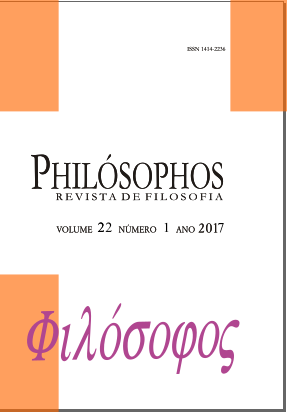ETHICS AND AESTHETICS IN ALBERT CAMUS: THE ARTISTIC CREATION AS A MORAL EDUCATION
DOI:
https://doi.org/10.5216/phi.v22i1.45933Keywords:
Camus, Aesthetics, Ethics, Novel.Abstract
In the book "The Rebel", the chapter "Revolt and Art" shows the ethical and metaphysical meaning of the novel which, in its own creative movement, proposes the "correction" of the real world so that man finds the limits and the form that would assign a meaning to the their experiences. Once Camus sees a form that suggests another value to human life in the artistic activity, this article aims investigate how the aesthetic creation constitutes for the author the supreme activity by which man seeks confer meaning to the existence marked by the absurd.Downloads
Downloads
Published
How to Cite
Issue
Section
License
Authors who publish in this journal agree to the following terms:
- Authors retain copyright and grant the journal right of first publication, with the work simultaneously licensed under a Creative Commons Attribution License that allows others to share the work with an acknowledgement of the work's authorship and initial publication in this journal.
- Authors are authorized to enter into separate, additional contractual arrangements for the non-exclusive distribution of the journal's published version of the work (e.g., publishing in an institutional repository or as a book chapter), with an acknowledgement of its authorship and initial publication in this journal.















